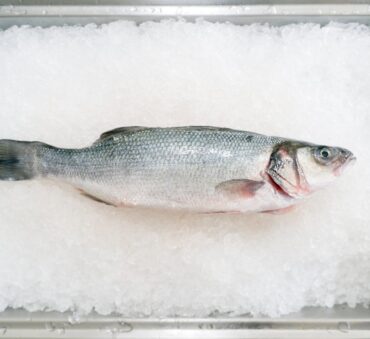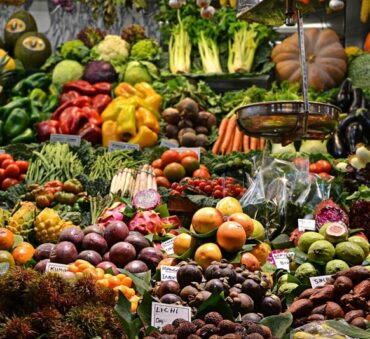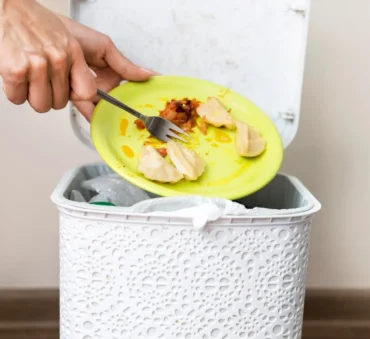In urban settings, food waste is a huge concern, with large quantities of waste in the retail and residential sectors, limited space for sustainable waste management, and a lack of awareness all contributing to the problem.
The same is true in Philadelphia, where food waste accounts for 17% of the residential waste stream—more than any other component.
However, Philadelphia has set ambitious goals for waste reduction, stating that their long-term “Zero Waste” objective is to fully eliminate the use of landfills and conventional incinerators by 2035.
But the big question is, how?
Keep reading to discover Philadelphia’s approach to helping residents and businesses minimize food waste, what you can and can’t compost in this city, and the local resources available to enhance efforts.
Key Takeaways
- Each year, 206 million pounds of food are sent to a landfill or incinerator in Philadelphia, contributing to environmental, economic, and social consequences.
- There are 13 sites across the city where residents can compost their food and yard waste, including community gardens, farms, and schools.
- Donating edible food to shelters or food banks helps reduce waste while supporting the community. By working with organizations like Philly Food Rescue, you can ensure food reaches those in need.
- To simplify food waste recycling, businesses can use private waste management services for tailored solutions that fit their unique schedule and needs.
Why Recycling Food Waste in Philadelphia Matters
Food waste in Philadelphia is a complex issue, driven by multiple contributing factors. This means there’s no one-size-fits-all solution, requiring innovative strategies and waste management solutions to address large-scale waste.
The NRDC comments on this, stating that many residents cited an inability to shop often as a significant driver of food waste. In addition to not having a proximity to grocery stores, residents that receive food assistance also claim that receiving too much food or food they can’t or do not want to eat is also a cause of waste.
That, combined with the limited capacity of composting facilities in Philadelphia to accept large amounts of food waste and residents’ frustration over seeing recycling efforts undermined by food being mixed with regular trash, makes food waste a multifaceted issue.

But to truly understand the impact this has on Philadelphia, let’s look at the environmental, economic, and social consequences of food waste:
- Environmental impact: 206 million pounds of food are sent to a landfill or incinerator in Philadelphia each year. Unfortunately, this has a lasting impact on the environment, contributing to pollution, resource depletion, and methane emissions.
- Economic impact: From farmers to consumers, food waste financially impacts everyone throughout the supply chain. At the consumer level alone, reducing food waste could save each Philadelphia family up to $1,300 each year.
- Social impact: The food insecurity rate in Philadelphia County is 15.8%, affecting approximately 249,890 people. This demonstrates the need to use resources more effectively, increase donation efforts, and bridge the gap between hunger and surplus food.
On the other hand, the benefits of reducing food waste are numerous, ranging from better resource management to reduced food insecurity. Philadelphia’s Zero Waste Initiatives play a big role in these efforts, engaging residents, businesses, institutions, and City departments in reducing and diverting waste away from landfills.

Food Waste Recycling Options in Philadelphia
So how can residents and businesses reduce waste?
From making more conscious decisions at home to increasing food donations and getting involved in community initiatives, there are various ways households and businesses can support waste reduction efforts.
Residential Food Waste Recycling
Since households are large contributors to waste, families must know how to improve food waste management at home. That said, there are multiple ways to reduce household food waste, including:
- Adopting more sustainable habits: As consumers, it’s our responsibility to make more sustainable decisions regarding food, meaning we must analyze our everyday choices to identify how we can reduce waste. While every person has unique habits, this often includes avoiding over-purchasing at the store, improving storage techniques to prevent premature spoilage, using leftovers creatively to reduce waste, and more.
- Creating an at-home compost pile: Whether you have a compost bin, create a pile in your backyard, or vermicompost food waste, there are various at-home solutions that can help you divert food from landfills. As an added bonus, composting produces nutrient-rich soil for gardening, meaning you can start a new environmentally friendly hobby or share it with your loved ones.
- Getting involved in community initiatives: Philadelphia has community recycling programs that make it even easier for households to reduce waste. As we’ll discuss below, this includes food composting programs strategically located throughout the city to enhance accessibility.
Business and Food Industry Recycling
From food production companies to supermarkets and restaurants, businesses are huge contributors of waste. However, there are various Philadelphia waste management solutions they can explore to minimize the effects of food waste, including:
- Enhancing everyday processes: There are many changes companies can make to reduce waste, such as improving inventory management, using technology to track food waste, training employees on best handling practices, ensuring storage areas maintain optimal temperatures and humidity levels, adjusting portion sizes to reduce plate waste, and more.
- Increasing food donations: Donating edible food to shelters or food banks helps reduce waste while supporting the community. By working with organizations like Philly Food Rescue, you can ensure food reaches those in need.
- Partnering with an organic waste management company: A great way to reduce food waste in Philadelphia is to take advantage of specialized waste management services, such as those offered by Shapiro. Shapiro creates tailored waste management strategies that help companies reduce their environmental footprint, stay compliant with Philadelphia recycling rules, and stand out as leaders in their industry.
Drop-Off and Collection Programs
To enhance Philadelphia waste management, there are multiple programs available to support both residents and businesses. This includes:
- Community composting programs: There are 13 sites across the city where residents can compost their food and yard waste, including community gardens, farms, and schools. Residents that participate are provided with compost bins, composting supplies, and educational materials and training.
- Philadelphia waste pickup programs: To make food waste recycling easy for businesses, there are various private pickup services available. By partnering with a company like Shapiro, companies can access tailored services, meaning they can accommodate their Philadelphia recycling schedule to their specific needs and explore different waste management solutions.
What You Can and Can’t Compost in Philadelphia
Since every composting program is distinct, we recommend checking the unique requirements of each program to ensure compliance. That said, we’ve created a list of items that are typically accepted (and not accepted) in most composting programs.
What you can compost:
- Vegetable and fruit scraps
- Meat scraps
- Coffee grounds
- Crushed eggshells
- Grains and rice
- Bread and pasta
- Yard waste
- Paper products
What not to compost:
- Oils and fats
- Yard trimmings treated with pesticides
- Diseased plants
- Pet waste
- Plastic
While some items may not be eligible for composting, that doesn’t necessarily mean they need to be sent to the landfill. With Philadelphia recycling programs, you can improve your household’s or business’ sustainability even more by diverting recyclable materials like plastics, glass, and metals to appropriate facilities.
To learn what you can put in your recycling bin, check out this guide.

Tools and Resources for Food Waste Recycling in Philadelphia
There are various tools and resources that residents and businesses can take advantage of to reduce food waste in Philadelphia and stay up to date with food waste management trends. This includes:
- Apps and tech: Applications like Philly Food Rescue and Food Connect make it easy to schedule food donations and deliveries. By providing residents and businesses with solutions that are only a click away, these apps are an innovative way to reduce food insecurity in Philadelphia.
- Local programs and organizations: As mentioned throughout this article, there are various programs that residents and businesses can participate in, such as composting programs to reduce household food waste, recycling programs that provide participants with bins for items like plastics and metals, and additional resources that support Philadelphia’s Zero Waste Initiative.
- Organic waste management solutions: Businesses that are interested in recycling in Philadelphia can streamline their efforts by working with an organic waste management company like Shapiro. At Shapiro, our team improves waste collection in Philadelphia by establishing each business’ unique needs and exploring various organic waste management solutions. We’ll then arrange for collection, transport food waste to one of our 200+ processing plants, and employ advanced food waste recycling solutions, all while helping you stay compliant and achieve sustainability goals.
Conclusion
With food waste in Philadelphia contributing to severe environmental, economic, and social consequences, both residents and businesses must ask themselves: What can I do to reduce waste and contribute to sustainability goals?
While it may seem difficult to get started, there are various Philadelphia waste management solutions available to make waste reduction efforts more attainable. Whether you want to reduce household waste or improve your company’s food waste recycling, we encourage you to take advantage of local resources, participate in community efforts, and use applications to improve donation efforts.
And if your company needs assistance with Philadelphia waste management, we invite you to explore our innovative waste management solutions at Shapiro, where we’ll help you find the right strategy for your unique needs.
Get in touch with us today to learn more about our services.
FAQs about Philadelphia Waste Management
Each year, 206 million pounds of food are sent to a landfill or incinerator in Philadelphia, contributing to environmental, economic, and social consequences.
Philadelphia offers various community recycling programs, including composting sites where residents can bring their food scraps, organizations like Philly Food Rescue to facilitate food donations, and private waste pick-up services tailored to businesses.
The city of Philadelphia recycles almost 40 percent of combined residential and commercial waste. As more efforts are made to improve waste collection in Philadelphia, this percentage is expected to improve.
The Philadelphia recycling program accepts plastics, metals, cartons, cardboard, and more. Composting programs, on the other hand, typically accept fruit and vegetable scraps, meat scraps, coffee grounds, crushed eggshells, grains and rice, and more.
Baily Ramsey, an accomplished marketing specialist, brings a unique blend of anthropological insight and marketing finesse to the digital landscape. Specializing in educational content creation, she creates content for various industries, with a particular interest in environmental initiatives.



